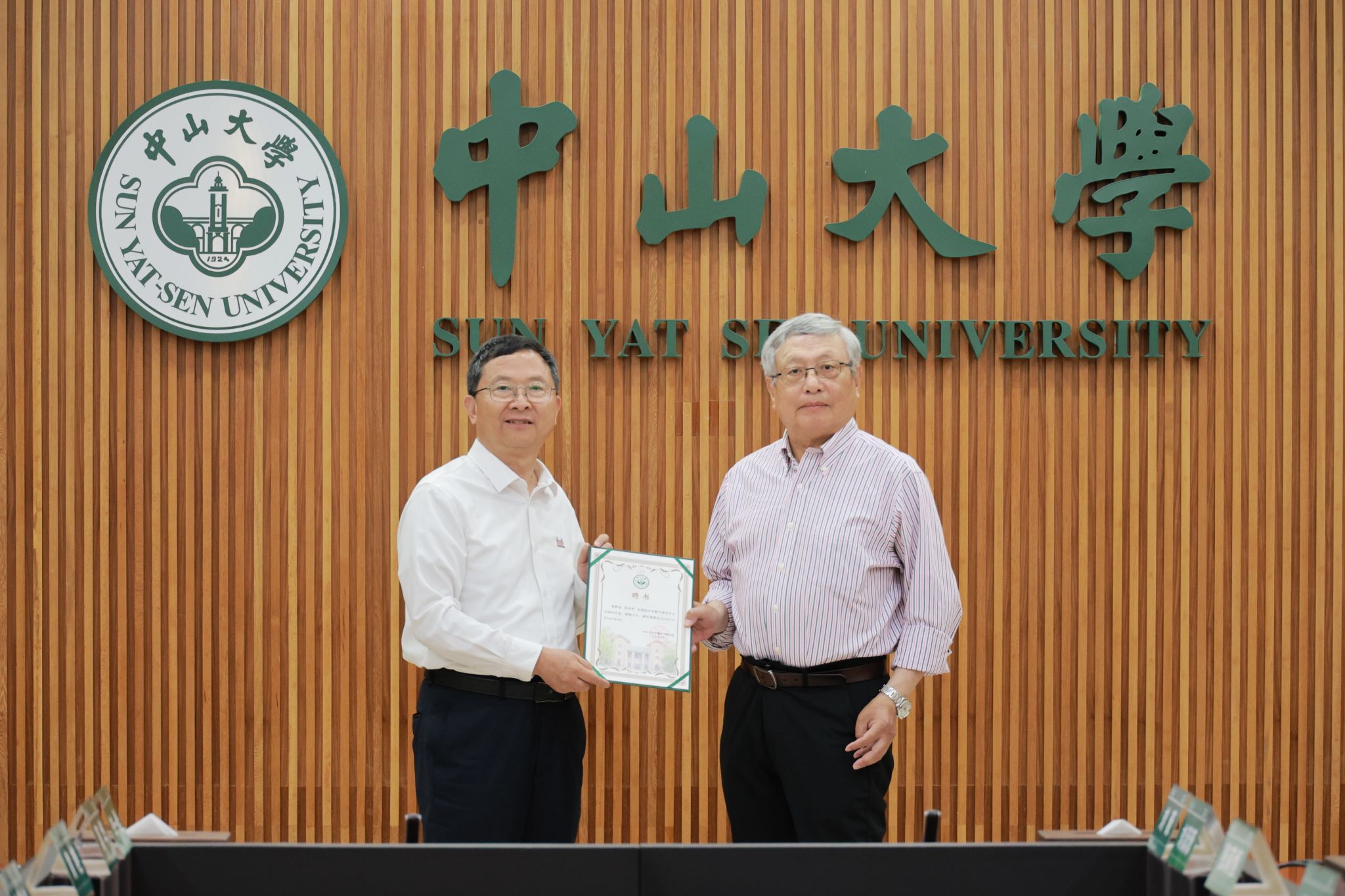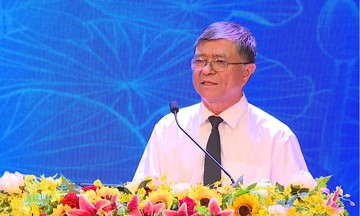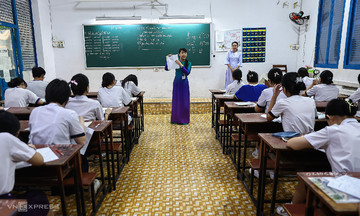Yitang Zhang has been working at Sun Yat-sen University's Institute of Advanced Study in China since June.
Before this, he was a mathematics professor for about 10 years at the University of California, Santa Barbara, ranked 39th nationwide by US News in 2025.
 |
Yitang Zhang walks on the beach near the University of California, Santa Barbara. Photo: Quantamagazine |
Professor Yitang Zhang was born in 1955 in Shanghai to a university professor and electrical engineer father and a civil servant mother. From a young age, he showed exceptional talent in mathematics. At the age of 8, he independently proved the Pythagorean theorem, and by 9, he understood Fermat's theorem and Goldbach's conjecture in number theory.
However, the Cultural Revolution forced schools to close, and he had to live with his grandmother and educate himself through inexpensive books.
"When I didn't understand something, I had to figure it out myself because there was no one to help," Zhang said. At 15, he was sent to the countryside for manual labor, but he continued to dream of studying. A few years later, he returned to Beijing and found a job at a lock factory.
Despite the circumstances, he was admitted to Peking University in 1978. In 1985, the university president recommended him for a doctoral program at Purdue University in the US. He decided to pursue the Jacobian conjecture, a famous problem in algebraic geometry posed in 1939, which remains unsolved.
Although his dissertation was incomplete, Zhang received his doctorate due to the extensive research he had conducted. However, he didn't receive letters of recommendation for job applications, reportedly due to issues with his advisor.
Unemployed, he worked temporary jobs at fast-food restaurants, as a delivery driver, and in various other roles. At one point, he worked at a friend's Subway sandwich shop to make ends meet.
"Sometimes, if the shop was busy, I helped at the cash register. I even learned how to make sandwiches, but not many," he recounted. For 7 years, Zhang often slept at friends' houses or even in his car because he couldn't afford rent.
In 1999, with the help of an old friend from Peking University, Zhang secured a temporary teaching position at the University of New Hampshire at the age of 44. There, he shifted his research focus to number theory.
His employment was contractual, his salary unstable, and he received no research support. It wasn't until 2005 that he received a permanent lecturer position. During this time, he commuted by university bus, using the travel time to contemplate mathematical problems.
"Seven days a week, I would go to the office from 8 or 9 in the morning and stay until 6 or 7 in the evening," he shared. Despite the challenges, he expressed gratitude for his time at New Hampshire, as the job allowed him to pursue mathematics.
In July 2012, while taking a walk behind a friend's house in Colorado, Zhang had a breakthrough in proving a theorem about bounded gaps between prime numbers.
After completing his work, he submitted his paper, "Bounded Gaps Between Primes," to the *Annals of Mathematics*, one of the most prestigious mathematics journals, and it was accepted. In 2013, the *Annals* received 915 submissions and accepted only 37.
Overnight, Zhang, then 55, became a sensation in the mathematics community. His research was hailed as one of the most important advances in number theory in the 21st century.
He was awarded the prestigious Ostrowski Prize in analysis and number theory and the 2014 Rolf Schock Prize in mathematics from the Royal Swedish Academy of Sciences.
He then spent six months at the Institute for Advanced Study in Princeton, New Jersey, before joining the University of California, Santa Barbara in late 2014, and later Sun Yat-sen University in Hong Kong, China.
Eric Grinberg, chair of the mathematics department at the University of Massachusetts Boston, said, "Professor Zhang is very humble, unassuming, and has never asked for anything. He’s just beyond normal.”
Now in his seventies, Zhang still walks for hours every day to think, carefully writing formulas on a blackboard in his small office overlooking oak trees.
"I still have intuition," he shared. "I'm still confident in myself, and I still have other visions."
 |
Professor Yitang Zhang receives his appointment letter from Sun Yat-sen University. Source: Sun Yat-sen University Website |
Phuong Anh - Huyen Trang (according to The Paper, South China Morning Post, Quantamagazine)












